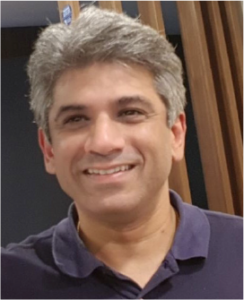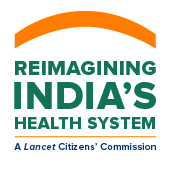In Conversation: S.V. Subramanian, Professor of Population Health and Geography
April 21, 2022

For my entire career over the last two decades at Harvard, I have primarily been a population health scientist looking at how non-health factors such as social capital, income inequality, neighbourhoods that one lives in, and broader socioeconomic conditions have an impact on health. I have also had the opportunity to investigate the roles hospitals and providers play in influencing outcomes such as whether an individual gets screened or the likelihood of having a C-section.However, for one reason or the other, this work was largely done outside of India (primarily in the US). With colleagues from India, I did have an opportunity to examine geographic variability (a core interest of mine) in aspects related to health insurance and out-of-pocket expenditure. Indeed, health systems are an important aspect of one’s context, which is my broader interest. So, when I was invited to be part of the Commission, I saw this as a humbling learning opportunity to engage more systematically with issues related to the health care systems in India.
Currently, I am the Principal Investigator of the India Policy Insights program, based out of the Geographic Insights lab at the Harvard Center for Population Development Studies. This interdisciplinary research lab uses fine-grained data to bring to light essential policy insights for monitoring development indicators, helping to foster accountability in policy actions. Population health is a major focus of this program. As a testament to our team’s work, the NITI Aayog has recognized India Policy Insights as a Key Initiative.
As I mentioned earlier, I see health care and health systems as an extremely important aspect of the broader context that shapes population health. Ensuring health care security is foundational for a society to reach its full potential. One of the core things that I am interested in is the role of data science and its contribution to shaping health care policies. Even as we strive towards ensuring health care security for all, the sheer size of India with regards to population, as well as heterogeneity in disease conditions, should necessitate some degree of prioritization, i.e., which population needs should be served first. This is critical both from an equity as well as an efficiency perspective. Thus, one component of our research leverages existing data to identify areas that should be taken up for prioritization in terms of interventions—a focus with direct relevance for the Commission’s work. Another part of my work that intersects with the Commission relates to the Citizen’s Survey, to better understand people’s own perception, aspirations and expectations from a health system. Additionally, members of my Lab have been engaging with the effort to create a UHC index for India; this stems from my overall interest in the Data Sciences.
I see three main challenges. The first is basic geographic provisioning across the length and breadth of India. In other words, the quantity and quality of the coverage of health care systems. I want to underscore that while India has made great strides in expanding its geographical coverage, whether this has been accompanied by the necessary quality is unclear. Indeed, the launch of efforts such as Sanjeevni (digital based outpatient treatment or OPD) should be recognized to this end, but internet/bandwidth inequities in digital delivery remain.
The second challenge is determining what goes into “Universal Health Coverage”—not just the coverage itself, but specifically, what is the list of health care aspects that are covered under UHC. And who decides this list. The devil is in the details. Unfortunately, I do not see sufficient engagement on this, as this is the place where hard decisions would have to be made. For India to come up with such a list is even more daunting, given the heterogeneity in disease conditions; we are tackling diseases of the early 20th century as well as diseases of aging, so this is going to be extremely challenging.
Last but not least is data infrastructure, as an efficient creation and management of health data systems is extremely important. On all three of the above, India is in a unique situation to lead the world. Let us not forget that there is no historical precedence for an open democratic society to provide health care (or anything for that matter) to a billion plus population. So whatever India is doing or will do needs to be looked at critically, but also applauded.
The Commission’s greatest strength is its inclusivity. The diverse membership from academics, industry leaders, practitioners, and administrators bring various perspectives and, more than likely, the promise of a workable prescription. Even if not immediately implementable, it ensures the diversity of perspectives, which is critical starting point. I also hope that once the Commission has delivered its “report”, this effort will be supported, and its recommendations will be followed through. Socializing and sensitizing such efforts are as important as the work itself. And such a process should also be flexible to alter any original recommendations that may have been made, via additional open dialogue.
